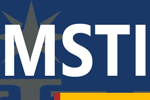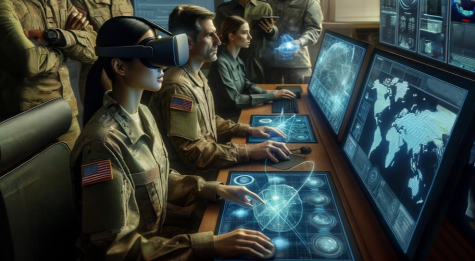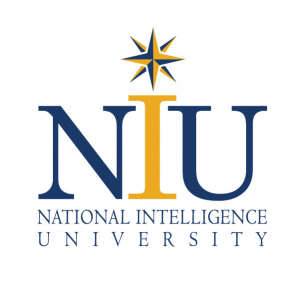Master of Science and Technology Intelligence
MSTI
The requirements of science and technology intelligence begin with a sophisticated understanding of the technological and engineering base. Only in that context can the intelligence question be framed and taught. This requires a specifically educated faculty: those who have technical degrees and backgrounds in developing and analyzing technologies; those with experience in technology acquisition, deployment, and development; and those with specific technical understanding. The student base for graduate education for a degree in the School of Science and Technology Intelligence likewise needs to have a working knowledge of the underpinnings of the science and technology that enter into the intelligence realm. As such, the student body tends to have characteristics that are significantly different from those involved in the advanced policy, political, and military strategic intelligence of the University’s current elective program.
 The S&TI School provides students with better opportunities for effective science-based research, focused education, and interagency outreach within a science-based educational paradigm.
The Master of Science and Technology Intelligence (MSTI) curriculum was developed by integrating the DNI’s published competencies, knowledge, skills, and abilities for S&T intelligence officers with the already effective core construct of the University. Students in the degree program take a similar set of core courses designed to introduce students to the strategic nature of intelligence analysis. While students in the MSSI program focus on political science and policy-based topics, students in the MSTI program follow a designed concentration of study to focus their education on their area of thesis research. The five concentrations are Counterproliferation, Cyber Intelligence, Data Science in Intelligence, Information and Influence Intelligence, and Emerging Technologies and Geostrategic Resources.
The S&TI School provides students with better opportunities for effective science-based research, focused education, and interagency outreach within a science-based educational paradigm.
The Master of Science and Technology Intelligence (MSTI) curriculum was developed by integrating the DNI’s published competencies, knowledge, skills, and abilities for S&T intelligence officers with the already effective core construct of the University. Students in the degree program take a similar set of core courses designed to introduce students to the strategic nature of intelligence analysis. While students in the MSSI program focus on political science and policy-based topics, students in the MSTI program follow a designed concentration of study to focus their education on their area of thesis research. The five concentrations are Counterproliferation, Cyber Intelligence, Data Science in Intelligence, Information and Influence Intelligence, and Emerging Technologies and Geostrategic Resources.
 The S&TI School provides students with better opportunities for effective science-based research, focused education, and interagency outreach within a science-based educational paradigm.
The Master of Science and Technology Intelligence (MSTI) curriculum was developed by integrating the DNI’s published competencies, knowledge, skills, and abilities for S&T intelligence officers with the already effective core construct of the University. Students in the degree program take a similar set of core courses designed to introduce students to the strategic nature of intelligence analysis. While students in the MSSI program focus on political science and policy-based topics, students in the MSTI program follow a designed concentration of study to focus their education on their area of thesis research. The five concentrations are Counterproliferation, Cyber Intelligence, Data Science in Intelligence, Information and Influence Intelligence, and Emerging Technologies and Geostrategic Resources.
The S&TI School provides students with better opportunities for effective science-based research, focused education, and interagency outreach within a science-based educational paradigm.
The Master of Science and Technology Intelligence (MSTI) curriculum was developed by integrating the DNI’s published competencies, knowledge, skills, and abilities for S&T intelligence officers with the already effective core construct of the University. Students in the degree program take a similar set of core courses designed to introduce students to the strategic nature of intelligence analysis. While students in the MSSI program focus on political science and policy-based topics, students in the MSTI program follow a designed concentration of study to focus their education on their area of thesis research. The five concentrations are Counterproliferation, Cyber Intelligence, Data Science in Intelligence, Information and Influence Intelligence, and Emerging Technologies and Geostrategic Resources. 

